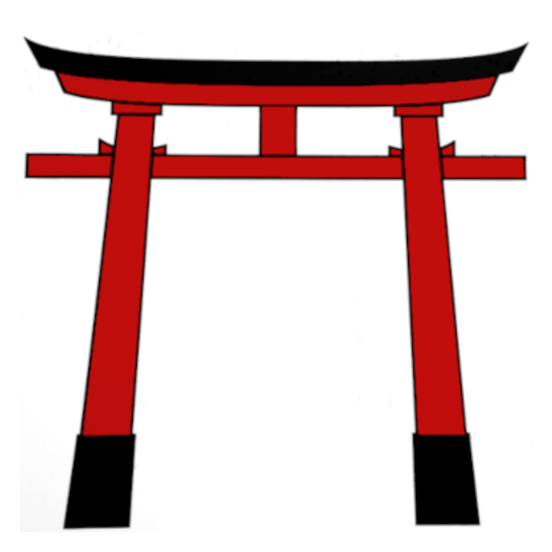|
|
独
|
 |
|
JLPT 2Joyo 5 |
|
| alone, single, Germany
hitori, DOKU
犭
虫
 |
|
Left: wild animal 犭(dog on hind legs), right: insect 虫 (The body 口 and the sting ム of an insect.)
Such animals and insects exist only in Germany. |
|
|
|
犯
|
 |
|
JLPT 2Joyo 5 |
|
| crime, commit, assault
okasu, HAN
犭
㔾
 |
|
Left: wild animal 犭(dog on hind legs), right: slumped person 㔾
A dog protects a slumped person from a crime. |
|
|
|
猿
|
 |
|
JLPT 1Joyo 7 |
|
| monkey, ape
|
Left: wild animal 犭(dog on hind legs), right: (Chinese only) long robe 袁 (= Down to the ground 土 extends the sleeve 口 of this clothes 衣.)
A wild animal in a long robe appears like: a monkey. |
|
|
|
獲
|
 |
|
JLPT 1Joyo 7 |
|
| obtain, acquire, seize, gain
eru, KAKU
犭
隹
 |
|
Left: wild animal 犭(dog on hind legs), right: (only as a radical) seize/lure into a trap  (a plait/bind/basket made of plants 艹 to attract/lure a bird 隹 below for catching by hand 又) (a plait/bind/basket made of plants 艹 to attract/lure a bird 隹 below for catching by hand 又)
The wild animal is lured into a trap to obtain it. |
|
|
|
狂
|
 |
|
JLPT 1Joyo 7 |
|
| insane, lunatic, mad
kuruu, KYŌ
犭
王
 |
|
Left: wild animal 犭(Dog on its hind legs), right: king 王
A wild animal that behaves like a king is insane. |
|
|
|
狭
|
 |
|
JLPT 2Joyo 7 |
|
| narrow, small, cramped
semai, KYŌ
犭
夹
 |
|
Left: wild animal 犭, right: squeezed in 夹 (husband 夫, squeezed from both sides 丷) [traditionally: 狹 with two persons 人]
The animal is squeezed in because it is so narrow. |
|
|
|
獄
|
 |
|
JLPT 1Joyo 7 |
|
| prison
|
From left: wild animal 犭(dog on hind legs), word 言, dog 犬
(The wild animal stands for the criminal and the tame dog is the good citizen:) A wild animal is tamed with words into a dog, when being in prison. |
|
|
|
墾
|
 |
|
JLPT 1Joyo 7 |
|
| ground-breaking cultivate, open up farmland
|
Left: var. of wild animal 犭, right: not good 艮 ('good' would be 良, but here the accent 丶 is missing, thus 'not good'), earth 土
Wild animals with horns are not good on a ground that shall be cultivated. |
|
|
|
懇
|
 |
|
JLPT 1Joyo 7 |
|
| sociable, courtesy, polite, kind
nengoro, KON
犭
艮
心
 |
|
Top left: var.of wild animal 犭(dog on hind legs), right: not good 艮, below: heart 心.
A wild animal with horns is not good but in its heart it is sociable & kind. |
|
|
|
狩
|
 |
|
JLPT 1Joyo 7 |
|
| hunt
karu/ri, SHU
犭
宀
寸
 |
|
Left: wild animal 犭 (dog on hind legs), right: protect 守 (.. by a roof 宀 or a skillful hand 寸) [cf. to catch 獲, where a basket 艹 is falling on that bird]
For wild animals use a trap 宀 and your skillful hand 寸 to hunt them. |
|
|
|
猫
|
 |
|
JLPT 2Joyo 7 |
|
| cat
neko, BYŌ, MYŌ
犭
苗
艹
 |
|
Left: wild animal 犭(dog on hind legs), right: seedling 苗 (= The plant [that is still as small] as grass 艹 on the field 田)
The animal in the seedlings is a cat. |
|
|
|
猛
|
 |
|
JLPT 1Joyo 7 |
|
| fierce, raging, heavy, furious
|
Left: wild animal 犭(dog on hind legs), right: child 子 (=together: dog's baby/puppy), plate 皿
A dog's puppy on a plate? Here sb. is fierce. |
|
|
|
猶
|
 |
|
JLPT 1Joyo 7 |
|
| still, deferment, furthermore, moreover, hesitate
|
Left: wild animal 犭(dog on hind legs), right: out of 丷, wine mug 酉
The wild animal out of the wine mug (=alcoholic intoxication) is still causing deferments. |
|
|
|
猟
|
 |
|
JLPT 1Joyo 7 |
|
| hunting
|
Left: wild animal 犭(dog on hind legs), right: claws 爪, use 用 (A fence 用 can be used)
(For example, the hound:) Animals with claws are used for hunting. |
|
|
|
狙
|
 |
|
JLPT -Joyo 7 |
|
| aim at, aspire, intent
nerau, SO
犭
且
 |
|
Left: wild animal 犭 (dog on hind legs), right: in addition/moreover 且 (A pile of stones [= a stone cairn] where moreover stones are added.)
The dog, in addition, is targeting an aim. |
|

